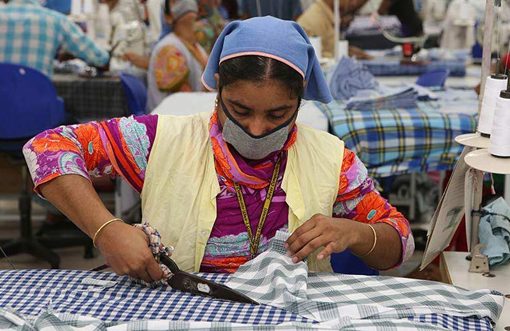A new report shows harmful practices of clothing brands, their representatives

Ten years after the Rana Plaza factory collapse, a new report from the NYU Stern Center for Business and Human Rights calls for a reformed collaborative approach to the outsourced manufacturing of apparel —one that does not create unfair economic pressure on factory owners, who all too often respond to such exploitation by reducing wages and benefits for their poor employees.
Based on interviews with suppliers and workers in Bangladesh, the report highlights harmful practices of corporate buyers and their representatives, some of which became extreme during the Covid-19 pandemic and persist in more subtle forms today.
The report, titled “A Broken Partnership: How Clothing Brands Exploit Suppliers and Harm Workers and What Can Be Done About It”, includes a series of practical recommendations for how clothing brands and retailers can establish more constructive relationships with outsourced suppliers, with the goal of protecting the human rights and economic well-being of workers.
Harmful buyer practices include pressuring suppliers for unreasonable price reductions, delaying the delivery and withholding payment, canceling bookings and projections, and relying on sourcing intermediaries who exacerbate exploitative practices.
The report recommends that corporate buyers immediately embrace the following reforms:
End unreasonable price reductions and excessive discounting practices that can result in reduced worker pay.
Cease delaying order delivery and commit to payment timelines that take suppliers’ raw material purchases into account.
Recognize that a projection or booking is as good as a contract for many suppliers, who prepare for production well in advance of the issuance of a formal purchase order.
Increase transparency and communication with third-party sourcing agents.
Reconcile commitments to factory safety and worker well-being with the commercial terms negotiated with manufacturers.





Comment here